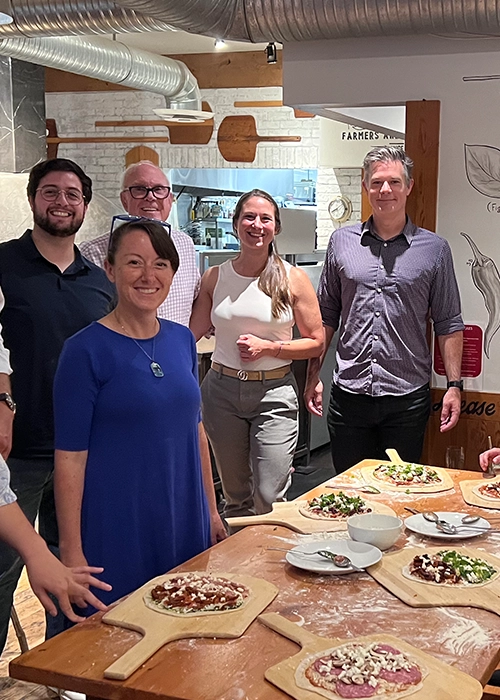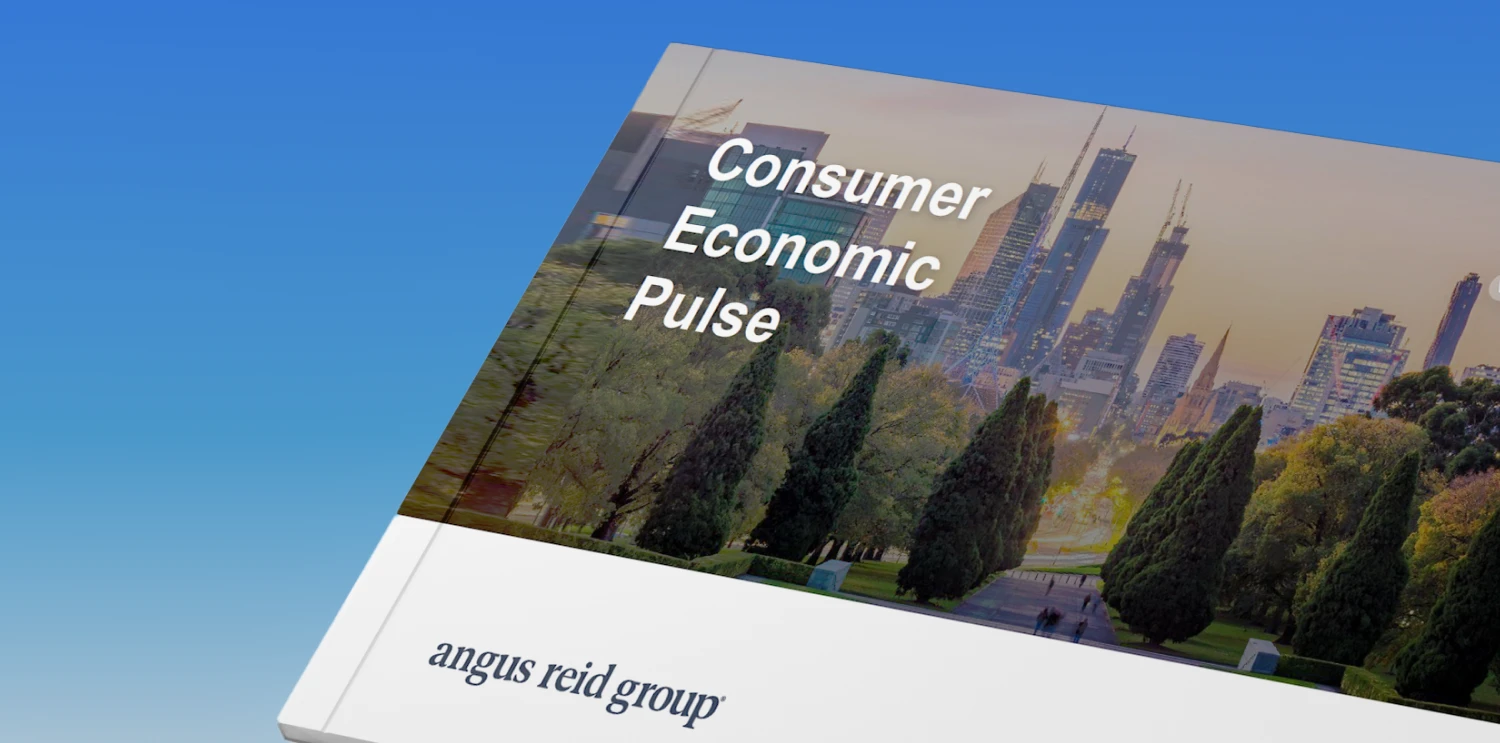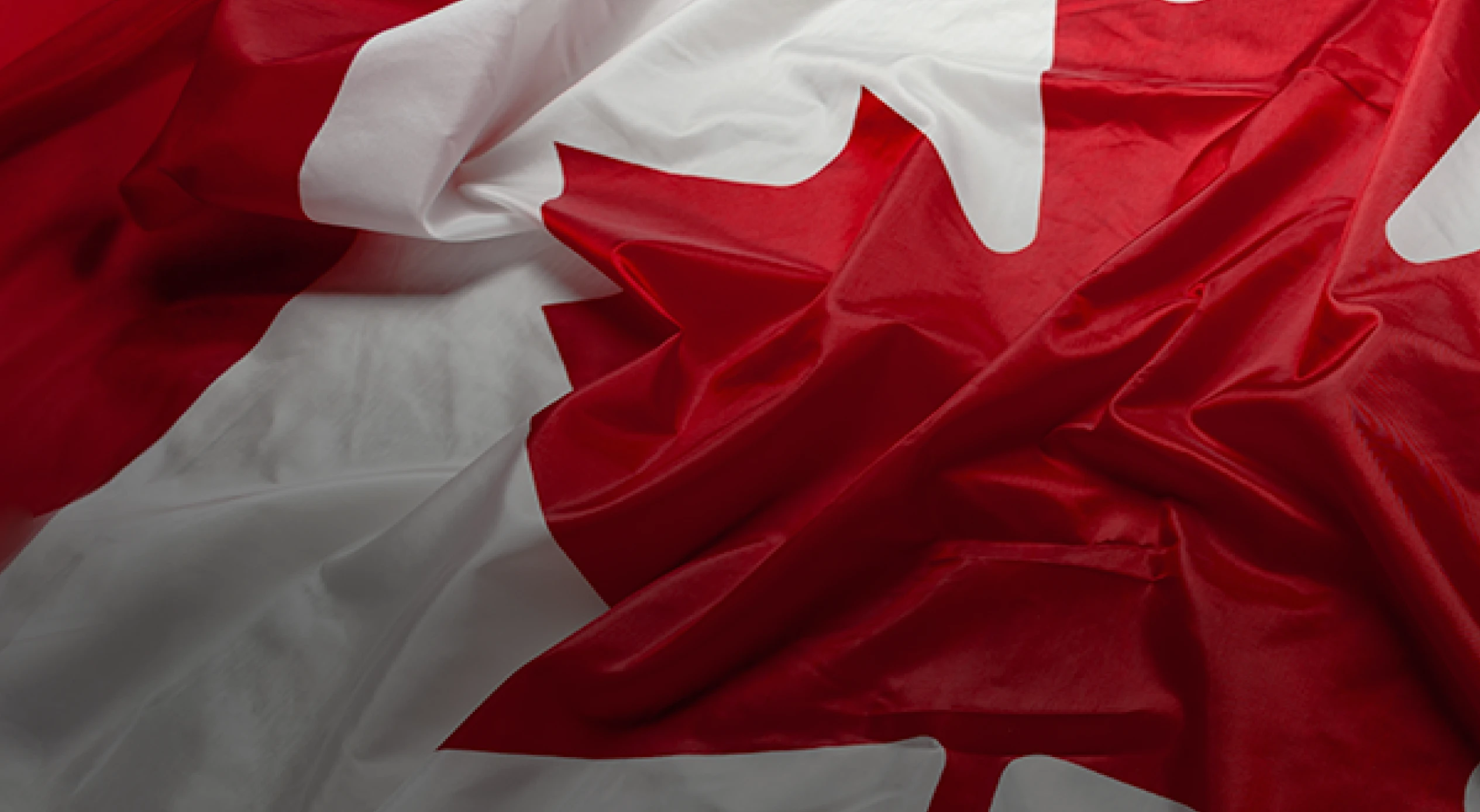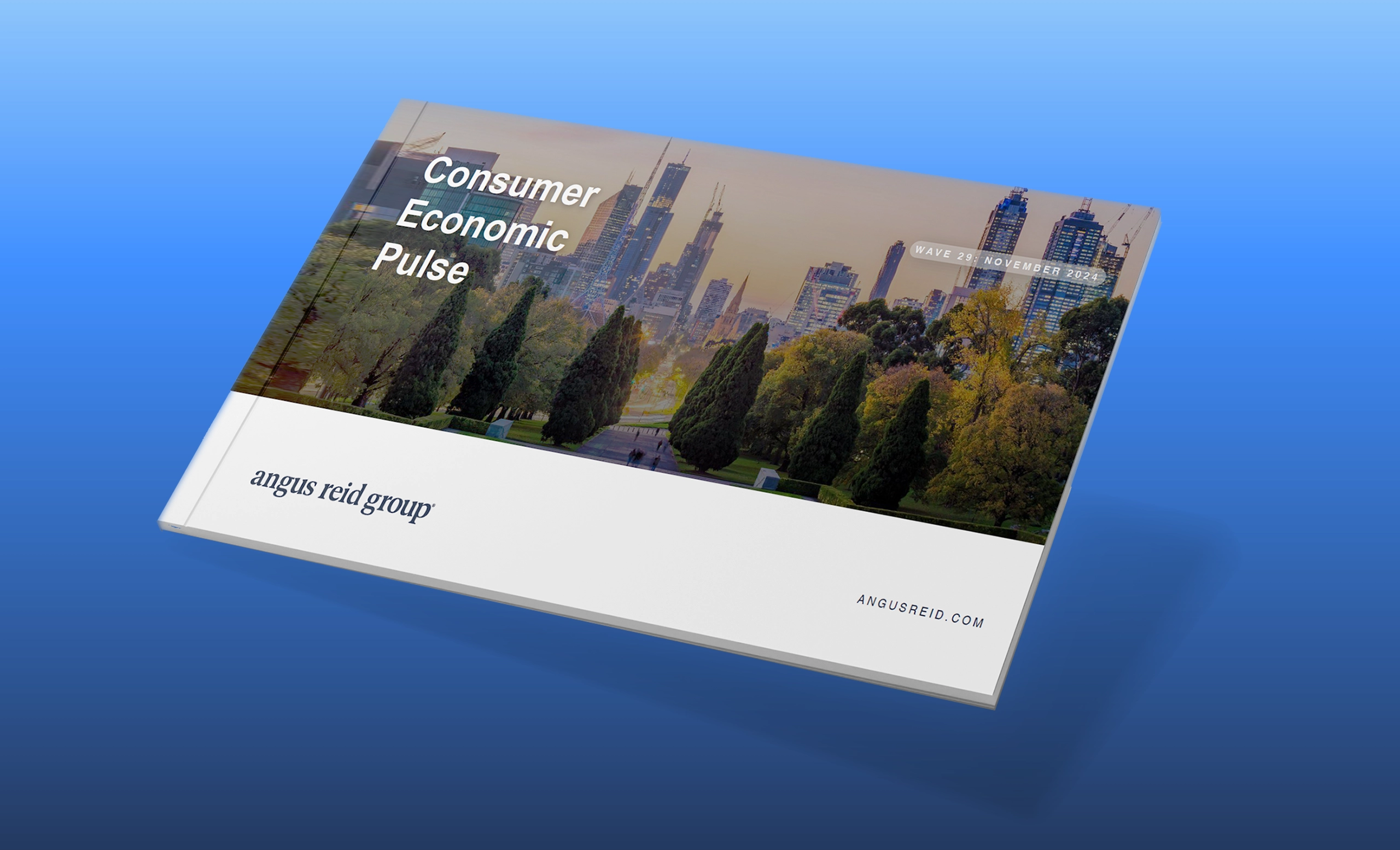Understanding why people make decisions has always been at the heart of market research. Yet traditional surveys often miss the mark, asking people to explain choices that they may not fully understand themselves. Decisions are often automatic and subconscious, shaped by what cognitive psychologists call System 1 thinking—fast, intuitive, and instinctive. Implicit Response Testing (IRT) offers a way to peer into this hidden layer of thought, providing insights that conventional methods can’t reach.
The IRT story
IRT builds on a rich history of psychological research, beginning with the groundbreaking work of Dutch physiologist F. C. Donders in the 1860s. Donders demonstrated that reaction times could reveal distinct stages of thought, showing how even seemingly simple metrics could offer profound insights into mental processes. One hundred and fifty years later, Daniel Kahneman’s Thinking, Fast and Slow introduced a broader audience to the concept of dual processing: System 1, the fast and automatic mode of thought, and System 2, the slow and deliberate counterpart. IRT makes it possible to determine whether a person’s reaction is intrinsic or extrinsic, uncovering subconscious responses that participants can’t articulate.
The process behind IRT is elegantly simple yet yields profound insights. Participants begin by completing a series of warm-up exercises designed to establish their individual reaction time baseline. These tasks, such as choosing between snack preferences, are intentionally straightforward and unrelated to the main study. Once the baseline is set, participants move to the main task: responding as quickly as possible to stimuli, such as brand attributes, product features, or advertising claims. Reaction times are then compared to the baseline, distinguishing automatic, implicit responses from more deliberate, explicit ones.
Unlike traditional IRT methods that rely on fixed-thresholds or average response speeds across a sample, the Angus Reid Group’s approach adapts to each individual’s natural reaction pace. This ensures marketers gain authentic insights into instinctive reactions, unclouded by the variability of individual differences.
Insights in Action
A recent IRT study explored reactions to the “Y7” credit card, a sleek stainless-steel offering centered on technology and rewards. The findings showed that 11% of participants were certain they would sign up, while another 24% were considering it. By delving into subconscious reactions to brand attributes, IRT provided a clearer understanding of the card’s emotional appeal.
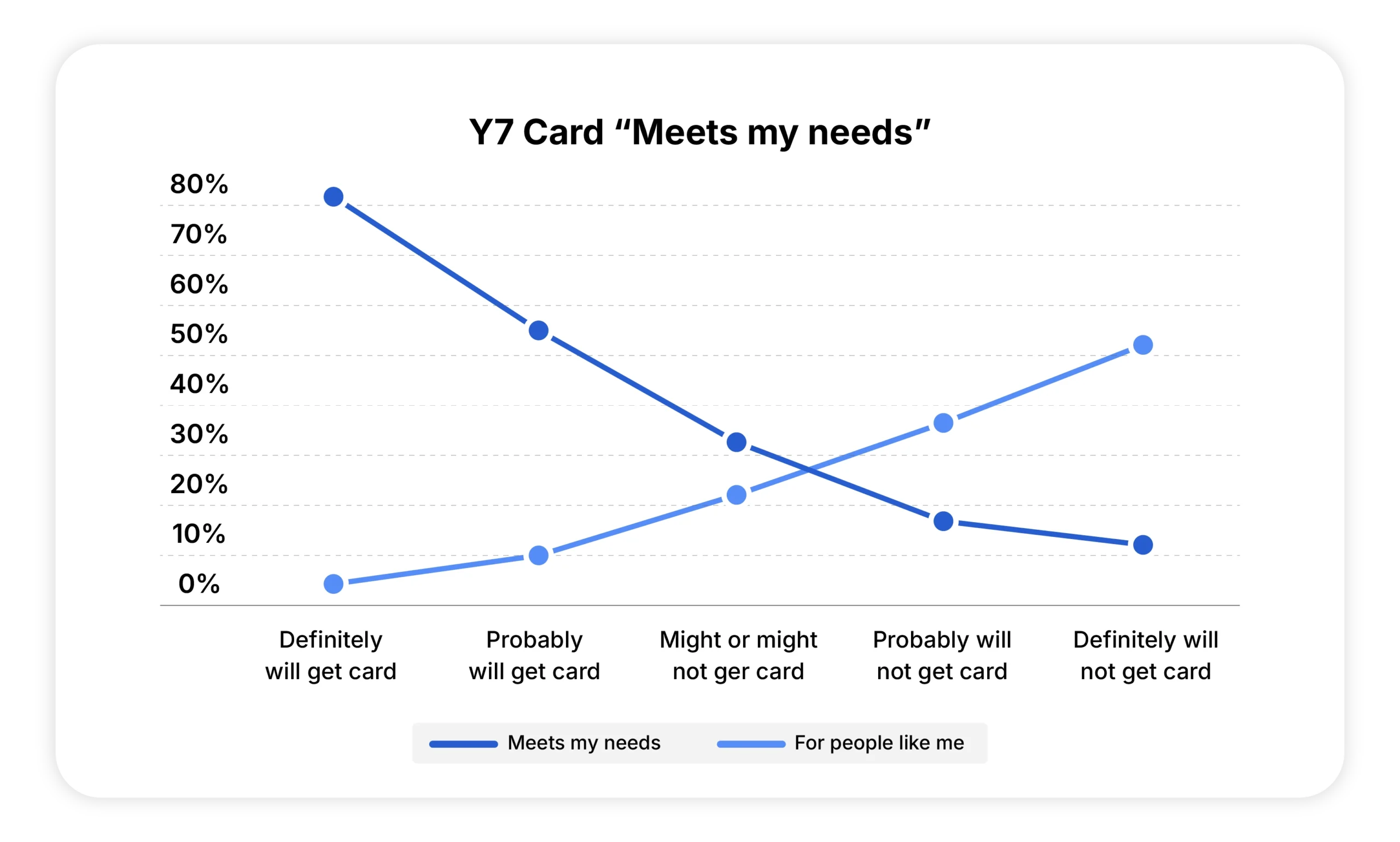
A quick look at these charts demonstrates how implicit responses closely aligned with purchase intent, showcasing IRT’s ability to link subconscious agreement to future behavior. Notice how implicit responses predict both interest and disinterest in the card, with the hallmark of implicit reactions being the decisiveness of the choice.
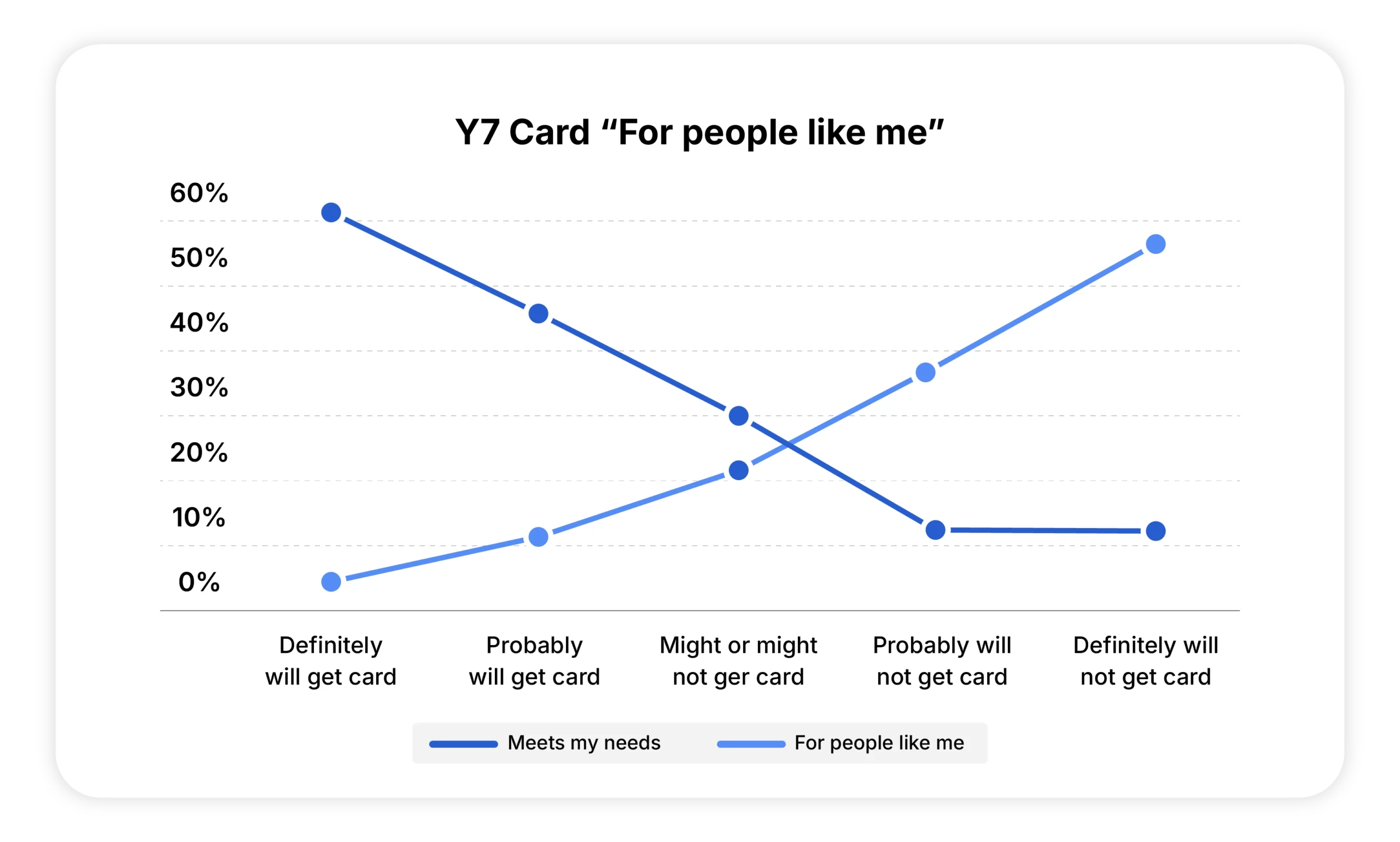
Another study examined brand perceptions of Apple, Acer, and HP. Attributes like “for people like me” and “meets my needs” gained stronger implicit agreement as participants moved from brand awareness to ownership. For example, 13% of those aware of a brand implicitly agreed it was “for people like me,” compared to 61% of owners. This progression highlights how deeper engagement with a brand strengthens emotional resonance, something traditional questions miss.
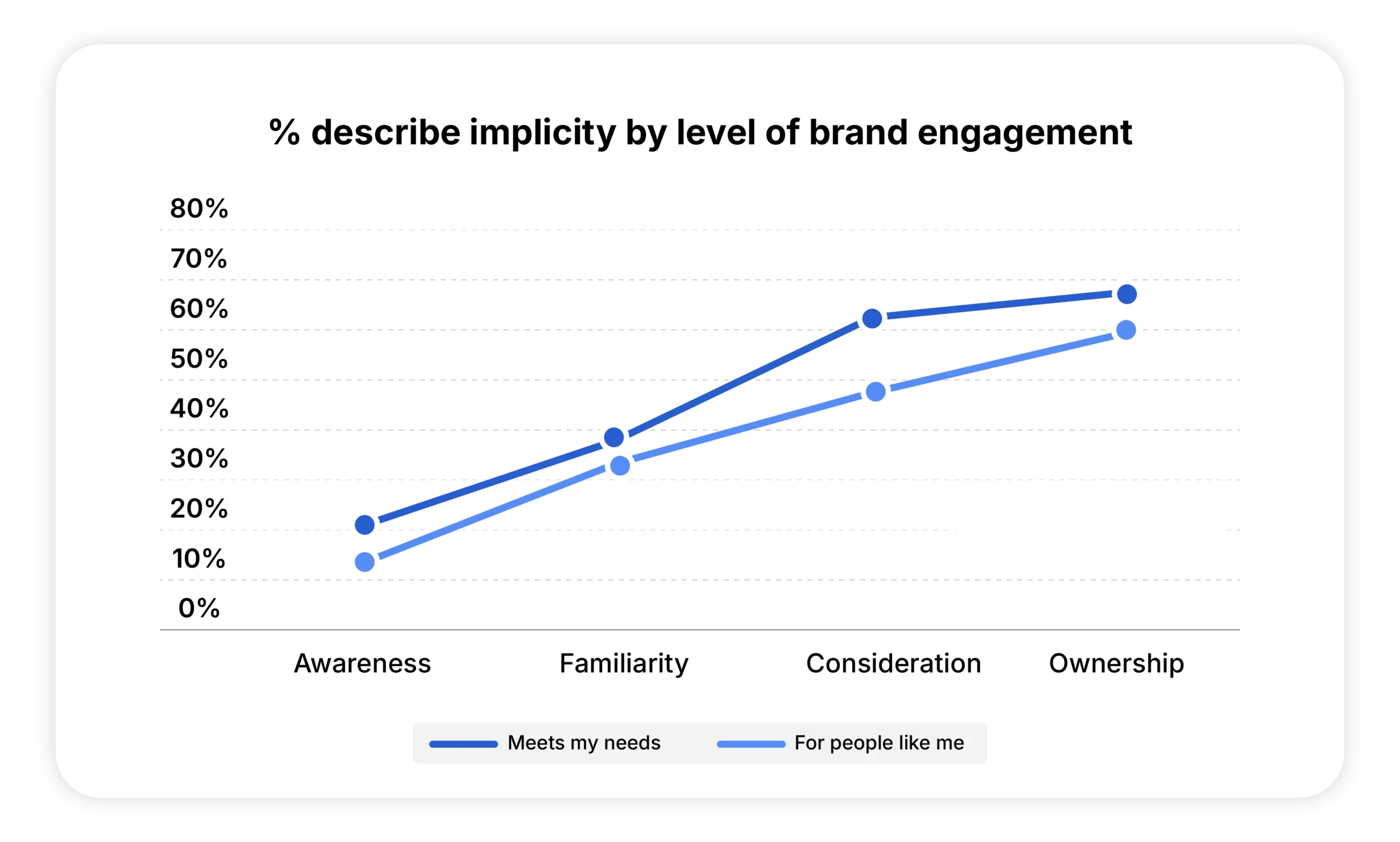
Uncovering the Unconscious
IRT transforms how we understand consumer behavior. Traditional surveys capture what people think they think. IRT reveals what they feel, cutting through conscious filters and social norms. By uncovering subconscious drivers, it helps brands craft messages that resonate emotionally and predict behaviors more accurately.
No method is without limitations. IRT requires focused participation, limiting the number of questions that can be asked in one session. It also reveals how people feel but not why, making it best used alongside qualitative methods. However, its ability to uncover genuine, instinctive reactions makes it invaluable for exploring consumer preferences.
Get the full story
In a world where consumer decisions are increasingly complex, IRT offers a way to decode the subconscious. By focusing on what people feel rather than what they say, it provides insights that traditional methods often miss.
What makes IRT so powerful is its ability to tell a complete story. When paired with traditional methods, it bridges the gap between rational thought and instinctive feeling, offering a fuller picture of human decision-making. For brands ready to go beyond the surface, IRT is the key to unlocking what consumers truly want.
Recommended
Consumer Economic Pulse – CA March 2025
...
Canada-US Relations 360
...
Consumer Economic Pulse – CA February 2025
Economic anxiety grows as recession fears resurface: Pessimism around personal finances has also increased, with 43% feeling pessimistic about their household’s financial future. More Canadians adjusting spending amid financial pressures: With increasing...
Navigating Canada-US Relations
...



